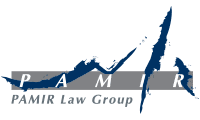If and when Taiwan is pressured to join the OECD CRS scheme, Taiwan’s government will automatically receive financial, deposit, securities and banking information of its citizens from governments and banks of 96 countries.
Taiwanese families and high-net-worth individuals (“HNWI’s) have traditionally enjoyed an unusual financial and political reality. Taiwanese have been global investors with businesses scattered overseas for decades. That global investment has been made in various corporate forms as well as individual family wealth driven structures. Many Taiwanese families and investors, despite the Taiwan tax codes requiring them to report and pay taxes on worldwide income, are believed to have maintained overseas bank accounts and assets without reporting the income or paying Taiwan taxes on this overseas income. These non-compliant practices have so far happened with impunity. That old-world reality of avoiding Taiwan tax on overseas income and assets may soon sunset for two reasons.
First, on December 17, 2015, the Legislature amended the criminal code to allow the Taiwan government to confiscate income and assets of overseas corporations that have obtained income by criminal means, a penalty previously only applicable to natural persons. This law would come into force in July 2016 if signed by the Executive Yuan. The Legislature has requested Executive action by March.
Another reason that this practice may sunset effective January 1, 2016, is related to the rollout of a global system of automatic financial information collection and exchange. Many Taiwanese are unaware of these radical international banking, financial and tax changes happening globally. Certainly, those Taiwanese who have not reported and paid taxes on income earned abroad are at serious risk of being discovered and liable under the tax and criminal laws of Taiwan.
What Has Changed?
To date, 96 countries1 have agreed to implement the OECD’s Common Reporting Standard (“CRS”) for automatic exchange of information. Each of these countries has agreed to automatically collect financial information about all persons holding accounts in that country, and share it with the governments of other signatory countries. It is expected that, with few exceptions, most nations in the world will join CRS. Possible exceptions will be North Korea and a handful of nations that have small mostly domestic economies. Even though Taiwan has not officially joined CRS, expert consensus indicates that it is only a matter of time until external pressures from CRS signatories will cause Taiwan to join and comply, since Taiwan’s economy is already so internationalized. If and when this happens, the Taiwanese government will automatically receive financial, deposit, securities and banking information of its citizens from overseas governments and banks. This includes 96 jurisdictions such as all British Overseas Territories, Hong Kong, USA, and Singapore.
So far, over 50 nations have already signed the Multilateral Competent Authority Agreement (“MCAA”), which requires automatic information exchange. The MCAA will likely become the global system to enforce CRS. This will supplement the existing bilateral information sharing agreements between nations.
New World Reality Intrudes on Privacy
This new world reality can be characterized as the greatest challenge to the existing private wealth management systems ever seen, since many wealthy families keep assets outside of their home countries for financial and personal safety reasons, and the automatic disclosure of account information puts these families’ wealth and security at risk.
The OECD has said, “there’s no place left to hide.” The OECD is trying to persuade the public that privacy is only relevant to criminals. This false logic has been applied by authoritarian and intrusive governments throughout history. Privacy is recognized as a basic right under article 12 of the United Nations’ Universal Declaration of Human Rights and is a right that is protected in almost all legal systems.
Many Old World jurisdictions which have been widely used for offshore private wealth and estate planning in the past are no longer safe from a privacy perspective. For example, the United Kingdom (including all British Overseas Territories2), New Zealand3 and others, are already moving to register trustees and to force disclosures of owners and beneficiaries, which were assumed to be private in the past. This means that old world structures such as trusts, double trusts and trusts over holding companies, which were mainstay wealth management tools of the old world, will no longer offer significant privacy.
The Challenge
Protecting the privacy of legitimate family investment groups while complying with the new world rules is what every investor and family group will want to balance in the coming years. Taiwanese overseas depositors should be aware of the new global law changes and should take steps to investigate the best ways to be compliant. Families that care about their privacy should examine the efficacy of their old world investment structures in a changing environment.
1. CRS by Jurisdiction.⤴
2. Offshore Structures and The Register of People with Significant Control – The PSC Register.⤴
3. Trustees take note: FATCA and the family trust.⤴
